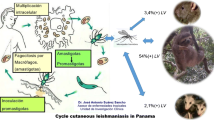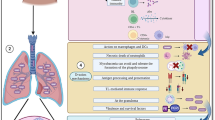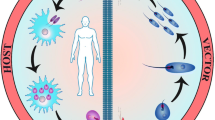Abstract
The aim of this study was to establish the evolution of visceral leishmaniasis (VL) in 10 consecutive patients coinfected with VL and HIV, taking into account the decline in the incidence of opportunistic infections after the introduction of protease inhibitor therapy. During a median follow-up of 31 months, 7 (70%) of 10 patients relapsed. The incidence of relapse was slightly lower than before institution of protease inhibitor therapy (20 vs. 13 patient-months), with a 31% probability that relapse would not have taken place within 2 years. VL relapses occurred even though increases in the CD4+ cell counts were observed and HIV loads were undetectable, suggesting that successful antiretroviral therapy is not sufficient to control the disease. Relapsing patients also had a lower increase in the CD4+ cell count.
Similar content being viewed by others
Author information
Authors and Affiliations
Rights and permissions
About this article
Cite this article
Casado, J., Lopez-Velez, R., Pintado, V. et al. Relapsing Visceral Leishmaniasis in HIV-Infected Patients Undergoing Successful Protease Inhibitor Therapy. EJCMID 20, 202–205 (2001). https://doi.org/10.1007/s100960100457
Issue Date:
DOI: https://doi.org/10.1007/s100960100457




